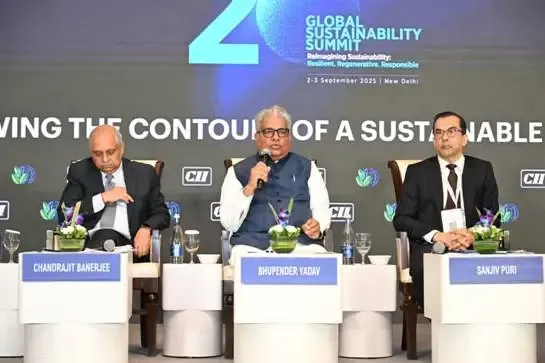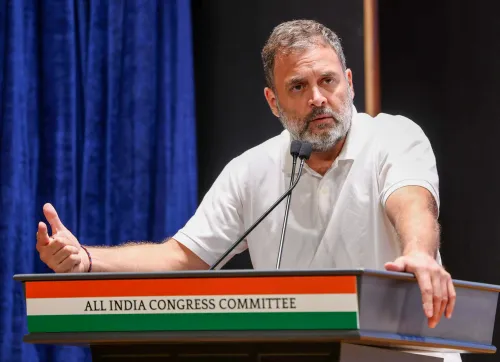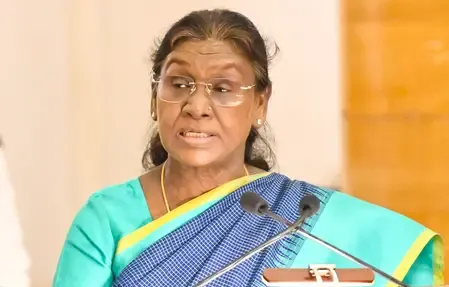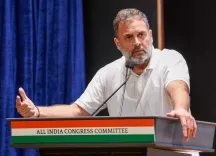Is India the Fastest-Growing Major Economy While Leading Climate Action?

Synopsis
Key Takeaways
- India is the fastest-growing major economy.
- Leadership in global climate action is essential for sustainable growth.
- Integration of sustainability into economic policies is crucial.
- Collaboration between industries and stakeholders is needed for progress.
- Innovative initiatives like 'Mission LiFE' demonstrate India's commitment to sustainability.
New Delhi, Sep 2 (NationPress) India has established itself as the fastest-growing major economy globally, while simultaneously spearheading international initiatives on climate action, as stated by Bhupender Yadav, Union Minister for Environment, Forest and Climate Change, on Tuesday.
During his address at the 20th Global Sustainability Summit, hosted by the CII-ITC Centre of Excellence for Sustainable Development, Yadav elaborated on India’s path toward resilient, regenerative, and responsible growth.
“India has emerged as the fastest-growing major economy while also leading global efforts on climate action,” Yadav remarked.
He emphasized that “India is uniquely positioned as the only nation that has effectively integrated sustainable growth within its policy framework through focused scheme execution, infrastructure investments, local commitments, and notable achievements on multilateral agreements.”
In his remarks to international delegates in New Delhi, Yadav stressed that India’s development framework is fundamentally about harmonizing economic advancement with ecological responsibility.
“By adopting Resilience, Regeneration, and Responsibility, we can navigate towards a more sustainable future,” he stated.
Yadav pointed out that current global trade tensions, policy ambiguities, geopolitical strife, and obstacles to international financial investments from major economies collectively contribute to a precarious environment.
“To make sustainability a core aspect of growth, we must adopt economy-wide strategies that integrate circular economy principles, promote nature-positive actions, advance green manufacturing, and encourage behavioral changes towards responsible practices,” he urged.
The Minister called on the world to adopt India’s principles for ‘sustainable growth’ and to concentrate on a unified global strategy to combat climate change.
“India’s policy framework and growth model illustrate how countries can synchronize economic growth with sustainability to foster resilient, low-carbon development paths. This comprehensive approach offers valuable insights for nations in the Global South seeking sustainable, inclusive, and pragmatic growth paradigms. Developed nations facing growth stagnation can rethink their development strategies and pivot towards sustainability, social equity, and enduring resilience,” Yadav added.
He concluded with a plea for industries and global stakeholders to collaborate in this transformative endeavor.
“Industries should go beyond traditional objectives and incorporate sustainability into their corporate strategies by aligning with national goals for resilience and inclusion,” he asserted.
Yadav highlighted that recent crucial notifications aimed at fostering a sustainable future include the Environment Audit Rules, 2025, an updated framework for the Green Credit Programme, and revisions to the Forest (Conservation and Augmentation) Rules, 2023.
Shri Yadav reaffirmed India’s commitment to sustainable development, citing significant strides made towards achieving NDCs under the Paris Agreement. He referenced India’s advancements in increasing forest cover, launching innovative initiatives like ‘Mission LiFE’ and ‘Ek Ped Maa Ke Naam’, improving carbon sinks, and promoting circular economy practices, among other efforts.









